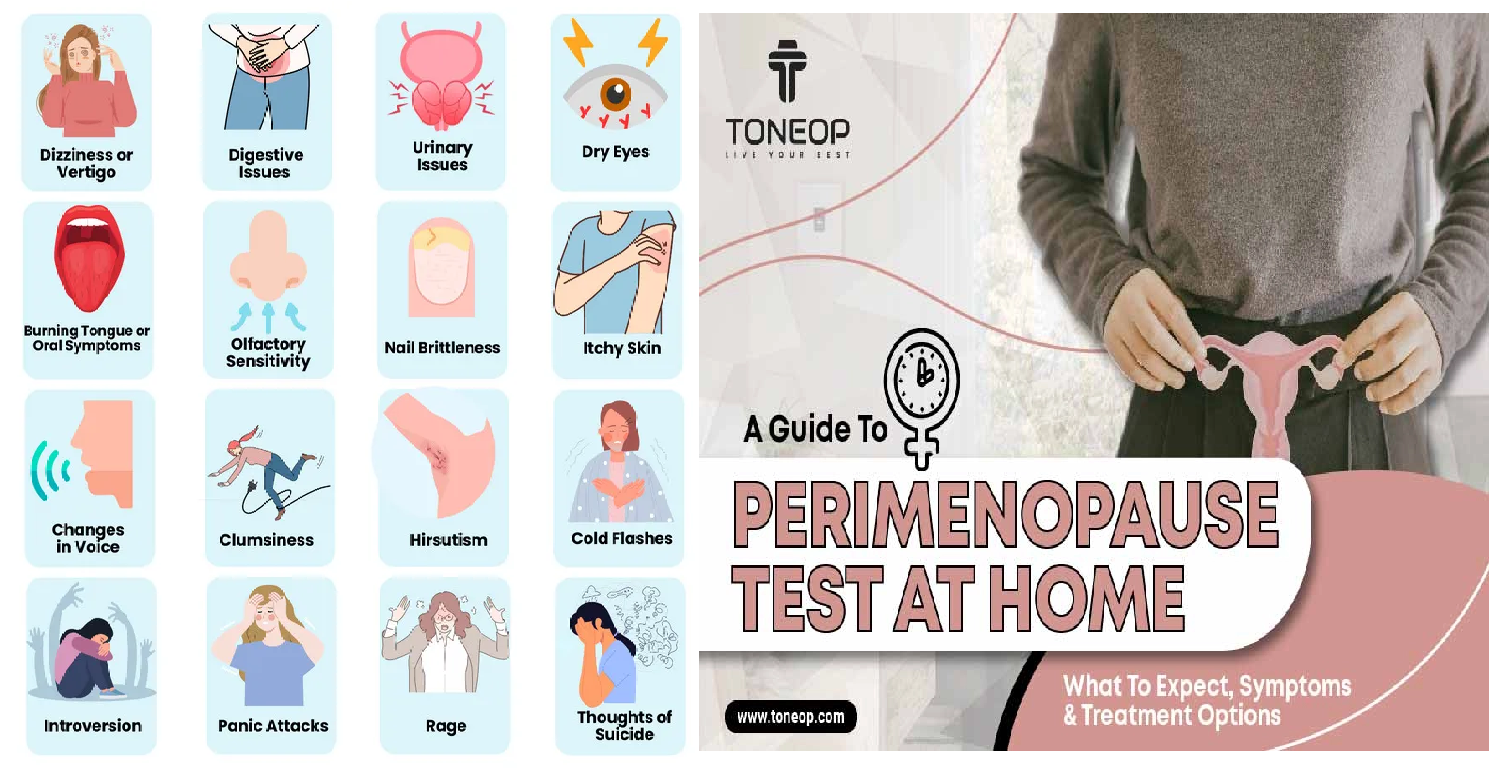Perimenopause is the transitional phase leading to menopause, during which women may experience a variety of physical and emotional changes. This article explores what are the 34 symptoms of perimenopause, along with common questions and concerns surrounding this phase of life.
What Are the 34 Symptoms of Perimenopause?
The 34 symptoms of perimenopause are a wide range of physical and emotional effects, including:
- Hot flashes
- Night sweats
- Irregular periods
- Mood swings
- Fatigue
- Insomnia
- Weight gain
- Decreased libido
- Vaginal dryness
- Breast tenderness
- Bloating
- Hair loss
- Memory issues
- Difficulty concentrating
- Anxiety
- Irritability
- Depression
- Dizziness
- Muscle aches
- Joint pain
- Headaches
- Changes in body odor
- Heart palpitations
- Burning mouth syndrome
- Electric shock sensations
- Gum problems
- Digestive issues
- Osteoporosis risk
- Urinary urgency
- Bladder control issues
- Dry skin
- Brittle nails
- Allergies
- Panic attacks
What Are the First Signs of Perimenopause Starting?
The first signs of perimenopause typically include changes in menstrual cycle patterns, such as irregular periods or heavier/lighter flow. Many women also begin experiencing hot flashes, mood swings, and sleep disturbances. Some may notice breast tenderness or vaginal dryness.
What Are the 100 Symptoms of Perimenopause?
While what are the 34 symptoms of perimenopause is commonly referenced, some resources list more than 100 symptoms due to the variety of physical and emotional changes women may experience. These include more detailed and rare symptoms like tinnitus, changes in vision, and even worsened allergies. However, most women do not experience all these symptoms.
What Are the 7 Stages of Perimenopause?
Perimenopause doesn’t have formal “stages,” but it can be broken down into early and late phases. In the early stage, symptoms like irregular periods and occasional hot flashes begin. In the late stage, symptoms become more intense, leading up to menopause (defined as 12 months without a period). These stages can be further subdivided into fluctuating hormone levels, increased symptoms, and eventual cessation of periods.
Is Perimenopause Serious?
Perimenopause is a natural phase of aging and is not typically considered “serious” in a medical sense. However, it can severely impact quality of life, especially if symptoms are intense or prolonged. Some symptoms, like osteoporosis or heart disease, may have long-term effects and require medical attention.
What Is the Best Treatment for Perimenopause?
The best treatment depends on the severity of symptoms. Hormone replacement therapy (HRT) is commonly prescribed to alleviate symptoms like hot flashes, night sweats, and vaginal dryness. Non-hormonal treatments, such as antidepressants or lifestyle changes (exercise, diet), can also help. Over-the-counter supplements like black cohosh, evening primrose oil, and vitamin E may offer relief for some women.
How Does a Woman Feel in Perimenopause?
Many women report feeling a mixture of physical discomfort (e.g., hot flashes, fatigue) and emotional turmoil (e.g., anxiety, irritability). Symptoms vary from mild to severe, and some women may feel overwhelmed by the emotional changes, while others find their physical symptoms more challenging.
What Is the Right Age for Perimenopause?
Perimenopause usually begins in a woman’s 40s, although it can start as early as the mid-30s or as late as the early 50s. The average age is around 45.
What to Eat in Perimenopause?
A balanced diet rich in calcium, vitamin D, and omega-3 fatty acids is crucial during perimenopause. Foods like leafy greens, salmon, flaxseeds, and fortified dairy products can support bone health and reduce the risk of osteoporosis. Avoiding sugar, caffeine, and processed foods may also help manage symptoms like weight gain and fatigue.
What Age Do Periods Stop?
Most women experience their last period in their early 50s, with menopause typically occurring around age 51. However, it varies, and some women may stop menstruating in their 40s or later into their 50s.
How Many Months Does Perimenopause Last?
Perimenopause can last anywhere from a few months to 10 years, with the average duration being about 4 years. Symptoms may start subtly and increase over time as menopause approaches.
What Is Normal During Perimenopause?
It’s normal for women to experience irregular periods, hot flashes, night sweats, and mood swings during perimenopause. However, each woman’s experience is unique. Some may have more intense symptoms, while others may have a relatively mild transition.
How Do I Know If I’m Perimenopausal?
Common indicators include changes in your menstrual cycle, new or increased symptoms like hot flashes and mood swings, and a gradual shift in overall health. Blood tests measuring hormone levels can help confirm perimenopause.
Can I Get Pregnant in Perimenopause?
Yes, it is still possible to get pregnant during perimenopause as ovulation can be irregular, but not completely absent. Birth control is recommended until menopause is confirmed (12 months without a period).
What Is the Difference Between Premenopause and Perimenopause?
Premenopause refers to the time before any perimenopausal symptoms start, when a woman is still having regular periods. Perimenopause is the transitional period when symptoms begin and hormone levels fluctuate leading up to menopause.
In summary, what are the 34 symptoms of perimenopause highlights the wide range of physical and emotional changes women experience during this transitional phase. Though not typically considered medically “serious,” the impact on quality of life can be significant, and various treatments and lifestyle adjustments can help manage the symptoms.
Read more:
1= https://rapidurlindexer.net/blogs/what-are-the-worst-perimenopause-symptoms/
3= https://rapidurlindexer.net/blogs/what-are-5-common-symptoms-of-kidney-stones/



